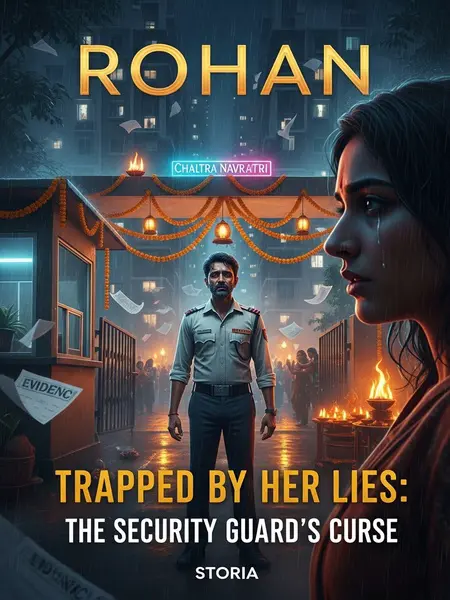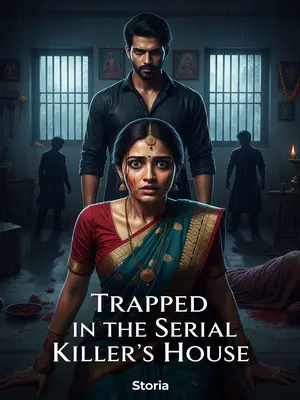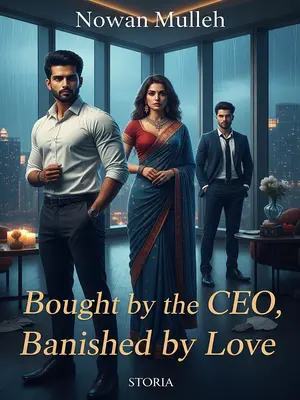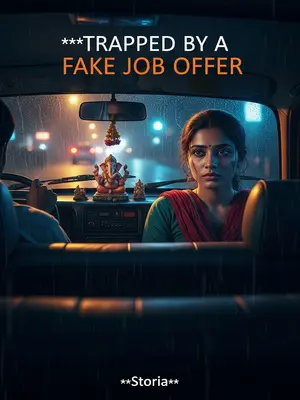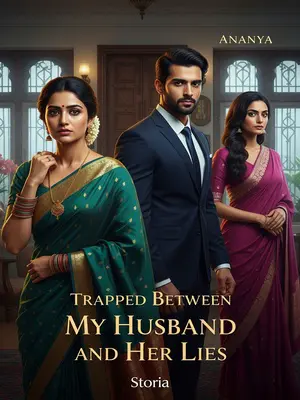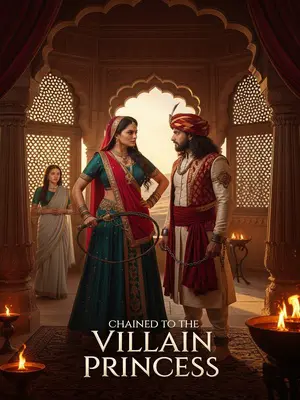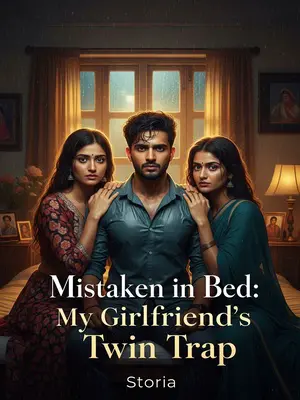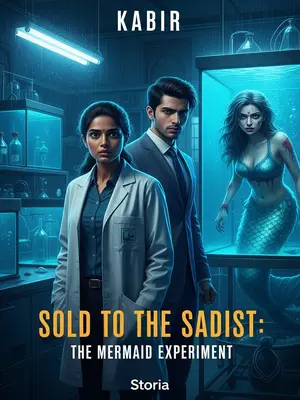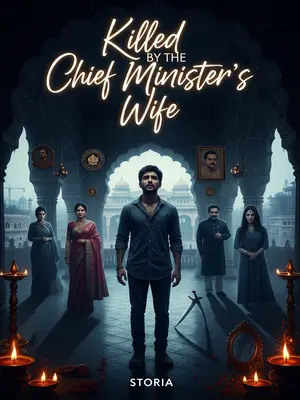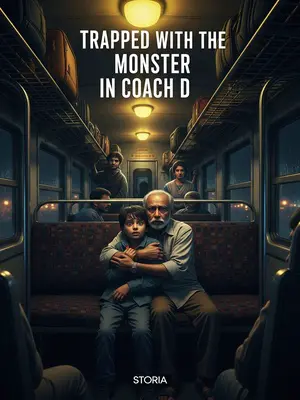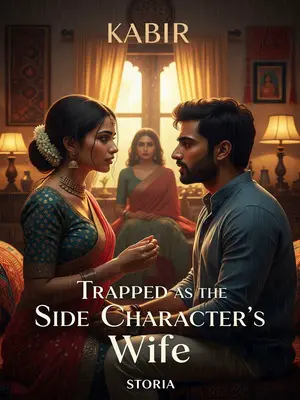Chapter 2: The Curse Repeats
“Help! Help... glug glug...”
A faint cry drifted from the riverbank, slicing through the shuttlecock thwacks and the hum of a pressure cooker from the chawl. My chest tightened. Déjà vu? Or something more sinister? Goosebumps prickled my arms, memories of suffocating smoke flashing before my eyes.
It was Chaitra Navratri—the weather was warm, but inside I shivered. The sort of cold that comes from fear, not the wind. I hugged myself, glancing at marigold petals trembling on the gate. Mika Singh’s remix thumped from the speaker, aunties swaying, kids chasing a stray ball. Same scene, but everything felt altered.
What's going on? Is the past repeating itself? I looked around, hoping someone else would break the cycle. But life went on, unknowing. “Help, help me...” The voice from the water yanked me back to last time—the flailing arms, dupatta floating, price I’d paid. The fire, the accusations, the injustice.
My feet refused to move. Wasn’t it enough to burn once? Amma’s warning echoed: “Beta, apne kaam se kaam rakh.” But her voice—just like my little sister’s—kept pulling me back.
I'm nothing special. I dropped out before my 12th boards. My bag was always patched, shoes fixed with Fevikwik. By the time I should have been learning Maths, I was counting overtime hours. No skills, so I became a security guard in Rajpur Park. My khaki uniform, always too big, put food on my plate, kept Amma’s medicine stocked, and let me send money home to Muzaffarnagar.
Twelve thousand a month, plus some Zomato deliveries. Rain or shine, my Hero cycle carried me gali to gali. I eat alone, but my family doesn’t go hungry. I save a little, and every month, five hundred rupees go to the local orphanage. Not much, but I remember the creak of rusty swings, the smell of boiled rice—my own childhood there.
Navratri came, colleagues went home. I took the night shift. "Saab, main kar loonga." The park emptied, bells and agarbatti smoke filling the air. Festivals are lonelier when you have nowhere to go. No one waits for me. I fill my time with work—it’s better than silence.
Some decisions you regret forever, like cheap shoes or trusting the wrong person. This was bigger. Last time, I heard cries, rushed over, saw a girl in a blue kurti, hair loose, eyes wild. I didn’t think—just leapt in. Water black as night, lungs burning, heartbeat thumping. She clung to me, fingers digging in. Then she touched my feet, sobbing for her dog. “Bhaiya, please, meri Tommy ko bacha lo!”
The river was icy. I dove again and again, teeth chattering, fingers blue. At last, exhausted, I gasped, “Beti, I tried everything. Tommy chala gaya. Sorry.” Both of us shivering. “Come, let’s get chai and change. Health is more important.”
But she snapped—calling me a dog killer, saying I didn’t try. “You didn’t care! Murderer! You let my Tommy die!”
I pointed at my drenched clothes: “Dekho, main bhi thanda hoon! I risked everything. Still, you blame me?”
“Kya main pagal hoon? Would I jump in twice if I didn’t care?”
Stories online always warn—helping can backfire. Amma’s voice: “Sab ko khush nahi kar sakte, beta.” I turned to leave, fuming. She ran to the roadside, screaming for help. Autos stopped, passengers craning. She spread rumours I groped her. “You pervert! Saving me, you couldn’t keep your hands off—but for my dog, you did nothing!”
Passersby were sensible. “Pagal ho gayi hai, kya?” a Nehru jacket uncle muttered. “Aaj kal ke bachche,” a woman shook her head. “Beta, you want to drown or be rescued? He did what he had to!” Army uncle tapped his stick: “That water’s not a joke, madam.”
She screamed, “Sab jhoot bol rahe hain! He touched me here, and here!” But no one believed her. “Drama queen lagti hai,” a schoolboy whispered. Baba spat, “Aaj kal kuch bhi bol dete hain.”
My body was numb with cold—desire the last thing on my mind. The crowd seemed to understand. I thanked those who defended me, hurried home, wet cloth slapping my calves.
But she lunged at me, clawing at my face, bangles jangling. “Janwar! Dog killer! You will pay!” My face stung, blood trickling. Someone dialed 112. Police jeep’s beacon flashed. Mishra led us into the thana, ceiling fan spinning lazily, the air thick with stale samosas and old files. The girl, knowing there was no CCTV, slandered me without restraint.
She unleashed her drama: “Sir, I swear on my mother, I was just walking and he—he grabbed me!” She painted herself as the helpless victim. “Agar main andhi hoti toh alag baat thi, sir. I saw him—he came from behind!” She sobbed, “Sir, usne mujhe paani mein bhi nahi chhoda! Meri Tommy bhi gaya, sir, mera sab kuch!”
I hurried to defend myself. “Sir, I was just doing my duty! Look at my uniform, my soaked clothes!” By then, the crowd outside thinned. With no surveillance, the police took our statements, told us to go home and wait.
But the girl had no intention of letting me go. Five-thousand-word Facebook post, #JusticeForPriya trending. I tried to clear my name online—trolls pounced. “Defensive much? Must be guilty!” She called me a loser, a twisted old bachelor. My photo splashed in WhatsApp groups, “Pervert Security Guard.” Even the chaiwala stopped giving me extra elaichi.
A DM appeared: “Pay two lakh, or things get worse.” I’d rather die. Amma’s eyes in her photo: “Izzat is everything, beta.” A neighbour whispered, “Bro, your photo’s everywhere. Hide.” I posted screenshots of my donations—hands shaking. “Daan chhupa ke karo,” Amma always said, but today, I had no choice. For a moment, some believed me. But then she found my room, poured petrol, and set it ablaze. The last thing I remember—the smell of kerosene, her voice cursing me as the flames closed in.
As the fire consumed me, I heard her voice: “Teri wajah se mera Tommy gaya! Tujhe bhi marna padega!”
When I opened my eyes, I was back—same park, same river, same festival. Not this time. I sneered, ran to the square-dancing aunties. “Aunties, crank up the music! Let’s get hyped!”
